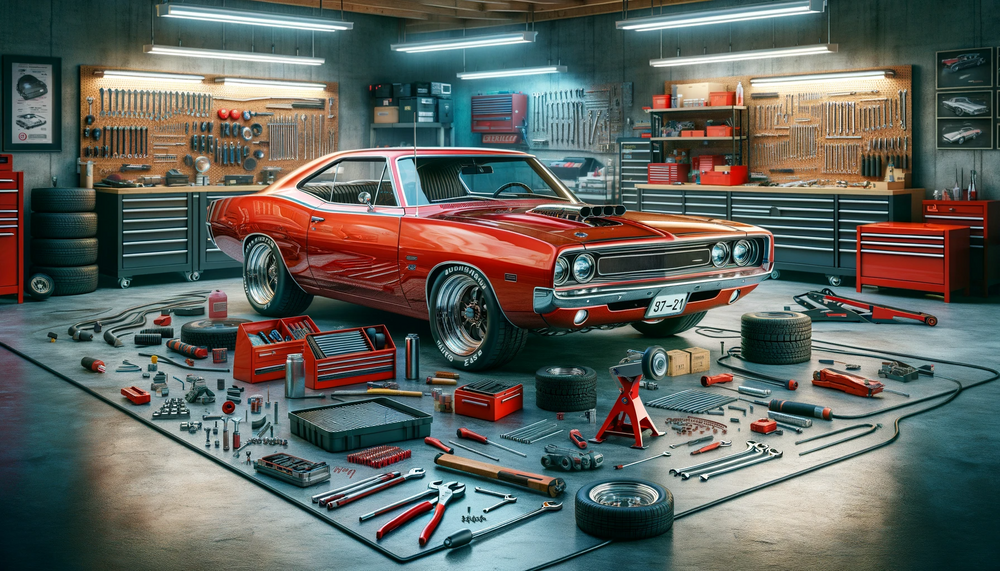Quieting the Beast: Sound Deadening Solutions for Diesel Trucks
Diesel trucks possess power, reliability, and the capability to undertake heavy-duty tasks like no other vehicles can. However, with this unmatched strength comes a price - the noise. Diesel engines are known for generating a substantial amount of noise and vibration, which can be fatiguing and distracting during extended drives. The good news is there are sound deadening solutions available that can effectively minimize noise and increase comfort, enhancing the overall driving experience for those behind the wheel.
In this detailed guide, we will explore the benefits of incorporating sound deadening solutions in diesel trucks, the best materials suited for these powerhouses, the proper installation techniques, and essential maintenance tips for keeping your truck's sound deadening in peak condition. Whether you're an owner-operator, transport driver, or an off-roading enthusiast, sound deadening solutions can transform your noisy diesel truck into a quieter, more comfortable driving environment.
Don't let the roar of your diesel engine hinder your driving experience any longer. Immerse yourself in the efficient world of sound deadening solutions and prepare to embark on a journey that promises tranquility, even amidst the heavy-duty tasks only diesel trucks can handle.
Benefits of Sound Deadening in Diesel Trucks
Implementing sound deadening solutions in your diesel truck can not only create a more comfortable driving experience, but also offer various practical advantages. Key reasons to invest in sound deadening for your diesel truck include:
- Reduced Noise and Vibration: Sound deadening materials effectively minimize engine, road, and wind noise, creating a more peaceful driving environment.
- Improved Communication: Reducing noise levels inside your truck's cabin makes it easier to communicate with passengers or use hands-free devices.
- Increased Comfort: A quieter cabin leads to a more comfortable and less fatiguing experience for long hauls and daily drives alike.
- Enhanced Resale Value: A diesel truck featuring superior noise reduction and comfort can be an attractive selling point, potentially increasing its resale value.
Identifying Noise Sources in Diesel Trucks
To effectively reduce noise, it's crucial to first identify the primary sources of noise in diesel trucks:
- Engine Noise: Diesel engines produce considerable noise due to combustion and mechanical operations.
- Vibration: Diesel trucks are prone to vibrations from the engine and transmission, which can transfer noise into the cabin.
- Road and Wind Noise: The size and structure of diesel trucks can allow substantial road and wind noise to infiltrate the cabin, particularly during high-speed driving.
- Exhaust Noise: Diesel engine exhausts create additional noise that can reverberate throughout the truck's body.
Understanding these noise sources will enable you to select the appropriate sound deadening solutions for your diesel truck.
Installing Sound Deadening Solutions in Diesel Trucks
For an effective sound deadening upgrade, follow these best practices when installing materials in your diesel truck:
- Clean Surfaces: Start with a clean and grease-free surface to ensure proper adhesion of sound deadening materials and minimize issues down the line.
- Measure and Cut Accurately: Measure the areas where the materials will be applied and cut them precisely to ensure the best fit and function.
- Apply Correctly: Follow manufacturer guidelines for each specific material during application to ensure effectiveness and longevity.
- Leave No Gaps: Make sure that there are no gaps or openings in the material, as these can allow noise to infiltrate the cabin.
Maintenance Tips for Sound Deadening Solutions in Diesel Trucks
Regular maintenance of your truck's sound deadening materials ensures peak performance and durability:
- Inspect Regularly: Frequently examine the condition of your sound deadening materials, checking for damage, wear, or attachment issues, and addressing any concerns promptly.
- Keep it Clean: Periodically clean sound deadening materials to remove dirt and debris that could hinder performance.
- Address Signs of Moisture: Check for signs of excess moisture, as this may lead to mold, mildew, or material degradation.
Conclusion
Implementing sound deadening solutions in your diesel truck can drastically improve the overall driving experience by reducing unwanted noise and vibration. By selecting the appropriate materials, properly installing them, and maintaining their condition, you can ensure a more peaceful and enjoyable journey, even during heavy-duty tasks.
Upgrade your diesel truck's cabin comfort with B-Quiet’s premium sound deadening materials and enjoy the peace and tranquility that come with a more refined driving experience. Browse our vast selection of noise reduction materials today!













